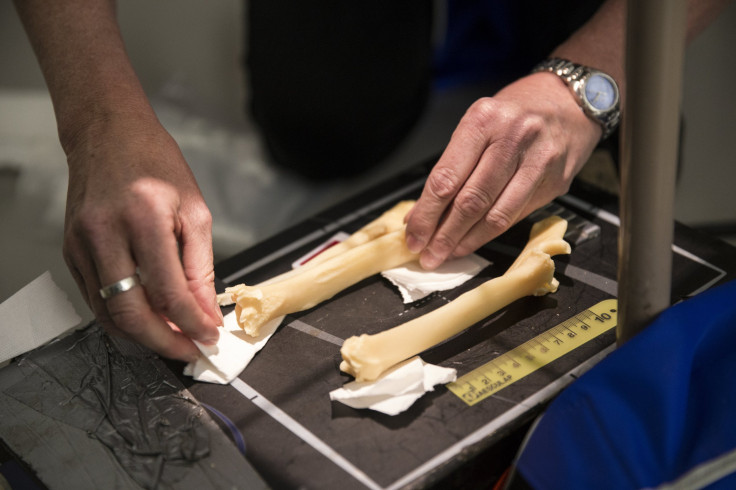Dolly, The Cloned Sheep, Did Not Have Abnormal Osteoarthritis, Skeleton Radiograph Shows

The world’s first successfully cloned mammal from adult somatic cells, Dolly the sheep, died in 2003 and had been suffering from osteoarthritis before she died. Sheep usually live for between 10 and 12 years; Dolly was euthanized before she turned seven, and the bone disease afflicted since she was about five-and-a-half years old.+Around the time of her death, this had led to concerns about early onset of age-related diseases among cloned animals. But a new analysis of the skeletons of Dolly and her contemporary clones by experts from the universities of Glasgow and Nottingham, in the United Kingdom, showed no abnormal osteoarthritis among any of the animals.
Kevin Sinclair from the University of Nottingham, who was part of the investigating team, said in a statement Thursday: “Our findings of last year appeared to be at odds with original concerns surrounding the nature and extent of osteoarthritis in Dolly — who was perceived to have aged prematurely. Yet no formal, comprehensive assessment of osteoarthritis in Dolly was ever undertaken. We, therefore, felt it necessary to set the record straight.”
The findings from last year, which were also conducted by a team led by Sinclair, found that 13 cloned sheep had no long-term detrimental health problems. Mild osteoarthritis had been found in some of the sheep, and only one displayed moderate arthritis.
The concerns around Dolly and early onset of arthritis have only one basis in any formal record about her, according to Sinclair. That record was a brief mention in the abstract of a paper presented at a conference, which reported the presence of osteoarthritis in Dolly’s left knee. Since Sinclair and his colleagues couldn’t find any corroborating document, they decided to investigate themselves, using radiographic assessment.
Sandra Corr from the University of Glasgow, who was also part of the new investigation team, said in the statement: “We found that the prevalence and distribution of radiographic-OA were similar to that observed in naturally conceived sheep, and our healthy aged cloned sheep. As a result, we conclude that the original concerns that cloning had caused early-onset OA in Dolly were unfounded.”
Their findings appeared online Thursday in an open-access paper titled “Radiographic assessment of the skeletons of Dolly and other clones finds no abnormal osteoarthritis,” in the journal Scientific Reports.
© Copyright IBTimes 2024. All rights reserved.











